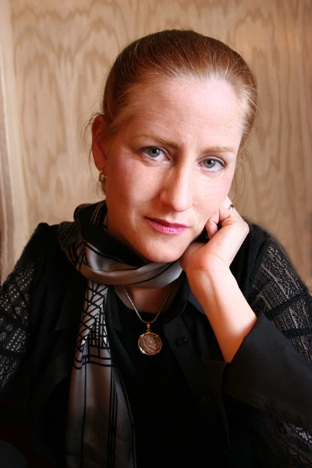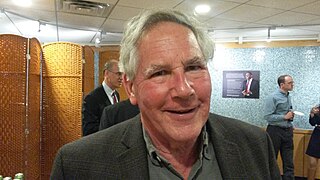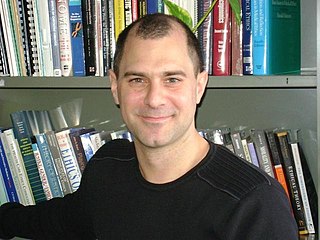Bioethics is both a field of study and professional practice, interested in ethical issues related to health, including those emerging from advances in biology, medicine, and technologies. It proposes the discussion about moral discernment in society and it is often related to medical policy and practice, but also to broader questions as environment, well-being and public health. Bioethics is concerned with the ethical questions that arise in the relationships among life sciences, biotechnology, medicine, politics, law, theology and philosophy. It includes the study of values relating to primary care, other branches of medicine, ethical education in science, animal, and environmental ethics, and public health.

Arthur L. Caplan is an American ethicist and professor of bioethics at New York University Grossman School of Medicine.
Albany Medical College (AMC) is a private medical school in Albany, New York. It was founded in 1839 by Alden March and James H. Armsby and is one of the oldest medical schools in the nation. The college is part of the Albany Medical Center, which includes the Albany Medical Center Hospital. Along with Albany College of Pharmacy, Albany Law School, the Dudley Observatory, and Union College, it is one of the constituent entities of Union University.
Linda MacDonald Glenn is an American bioethicist, healthcare educator, lecturer, consultant, and attorney-at-law. Her academic research encompasses the legal, ethical, and social impact of emerging and exponential technologies and "evolving notions of personhood".

Edmund Daniel Pellegrino was an American bioethicist and academic who served as the 11th president of The Catholic University of America (CUA) from 1978 to 1982. For 35 years, Pellegrino was a distinguished professor of medicine and medical ethics and the Director of the Kennedy Institute of Ethics at Georgetown University. Pellegrino was an expert both in clinical bioethics, and in the field of medicine and the humanities, specifically, the teaching of humanities in medical school, which he helped pioneer). He was the second layman to hold the position of President of Catholic University.

Gregory E. Pence is an American philosopher.
Matthew K. Wynia is an American physician and bioethicist who has been the director of the Center for Bioethics and Humanities at the University of Colorado's Anschutz Medical Campus since 2015. He also oversees an art gallery and forum there. He previously directed the American Medical Association's Institute on Ethics for 15 years. He also previously served as an assistant professor of medicine at the University of Chicago, as the president of the American Society for Bioethics and Humanities, and as the director of patient and physician engagement at the American Medical Association in Chicago.
Albert R. Jonsen was one of the founders of the field of Bioethics. He was Emeritus Professor of Ethics in Medicine at the University of Washington, School of Medicine, where he was Chairman of the Department of Medical History and Ethics from 1987 to 1999. After retiring from UW, he returned to San Francisco, where he co-founded the Program in Medicine and Human Values at Sutter Health's California Pacific Medical Center in 2003.
The Centre for Human Bioethics is the previous name of a research and teaching centre at Monash University, based in the Faculty of Arts. The Centre is now known as the Monash Bioethics Centre. It focusses on the branch of ethics known as bioethics, a field relating to biological science and medicine. It was founded in October 1980 by Professors Peter Singer and Helga Kuhse, as the first centre in Australia devoted to bioethics, and one of the first in the world.
Jewish medical ethics is a modern scholarly and clinical approach to medical ethics that draws upon Jewish thought and teachings. Pioneered by Rabbi Immanuel Jakobovits in the 1950s, Jewish medical ethics centers mainly around an applied ethics drawing upon traditional rabbinic law (halakhah). In addition, scholars have begun examining theoretical and methodological questions, while the field itself has been broadened to encompass bioethics and non-halakhic approaches.

Sigrid Fry-Revere is an American medical ethicist and lawyer who has worked on many issues in patient care ethics, but most recently has been working on the rights of living organ donors.

Daniel Isaac Wikler is an American public health educator, philosopher, and medical ethicist. He is currently the Mary B. Saltonstall Professor of Population Ethics and Professor of Ethics and Population Health in the Department of Global Health and Population of the Harvard T.H. Chan School of Public Health in Boston. He is Director and a core faculty member in the Harvard Program in Ethics and Health (PEH). His current research interests are ethical issues in population and international health, including the allocation of health resources, health research involving human subjects, organ transplant ethics, and ethical dilemmas arising in public health practice, and he teaches several courses each year. He is a fellow of the Hastings Center, an independent bioethics research institution.
Robert Paul Ramsey was an American Christian ethicist of the 20th century. He was a Methodist and his primary focus in ethics was medical ethics. The major portion of his academic career was spent as a tenured professor at Princeton University until the end of his life in 1988. His most notable contributions to ethics were in the fields of Christian ethics, bioethics, just war theory and common law.
Nikola Biller-Andorno is a German bioethicist. She is Professor and Director of the Institute of Biomedical Ethics of the University of Zurich, Switzerland.
Søren Holm is a bioethicist and philosopher of medicine. He holds a chair in bioethics at the Centre for Social Ethics and Policy, part of the School of Law at the University of Manchester in Great Britain and the University of Oslo. With Professor John Harris Holm served as co-Editor in Chief of the Journal of Medical Ethics from 2004-2011. Holm holds a master's degree in health care ethics from the University of Manchester and two doctoral degrees in medical ethics from the University of Copenhagen. He was a member of the Nuffield Council on Bioethics from 2006 to 2012 and a member of the Council’s Working Party on Emerging biotechnologies.

Norman Daniels is an American political philosopher and philosopher of science, political theorist, ethicist, and bioethicist at Harvard University and the Harvard T.H. Chan School of Public Health. Before his career at Harvard, Daniels had built his career as a medical ethicist at Tufts University in Medford, Massachusetts, and at Tufts University School of Medicine, also in Boston. He also developed the concept of accountability for reasonableness with James Sabin, an ethics framework used to challenge the healthcare resource allocation in the 1990s.
Lisa Sowle Cahill is an American ethicist, and J. Donald Monan Professor at Boston College. She first became known in the 1980s with her studies on gender and sexual ethics, but now she has extended her work to social and global ethics. Lisa Sowle Cahill's work focuses on an attempt to discuss the complexity of moral issues while lowering tensions about theological disagreements between the Church and society.

John Morley Harris, FMedSci, FRSA, FRSB, is a British bioethicist and philosopher. He is the Lord Alliance Professor of Bioethics and Director of the Institute for Science, Ethics and Innovation at the University of Manchester.

Bryn Williams-Jones is a Canadian bioethicist, professor and director of the Department of Social and Preventive Medicine at the School of Public Health, Université de Montréal. He is co-founder and editor-in-chief of the Canadian Journal of Bioethics/Revue canadienne de bioéthique, the first open access bilingual bioethics journal in Canada, and co-director of the Ethics branch of the International Observatory on the Social Impact of AI and Digital Technology (OBVIA). Williams-Jones is a member of the Centre for Research in Public Health (CReSP), the Centre for Ethics Research (CRÉ), the Institute for Applied Ethics (IDÉA) of the Université Laval, and fellow of The Hastings Center.
Eric M. Meslin PhD is a Canadian-American philosopher-bioethicist and current President and CEO of the Council of Canadian Academies (CCA).








